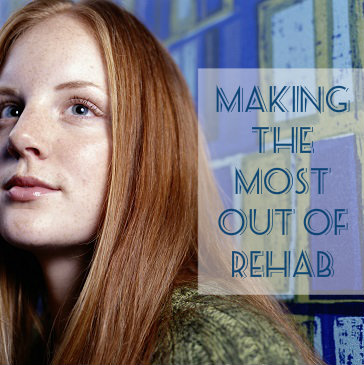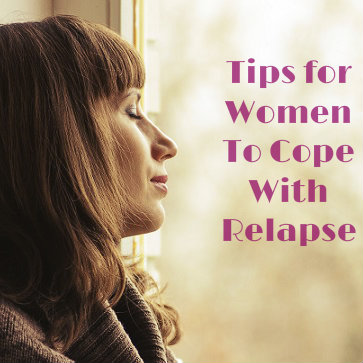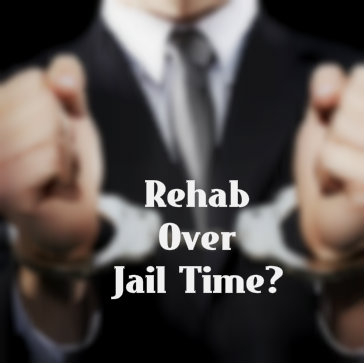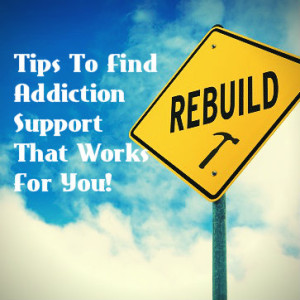12 Sep 2014
The Power Of Education During Recovery
Education is a powerful force for anyone. Learning more about the world improves your quality of life. Earning degrees can help you get a better job, earn more income, and increase your sense of self-worth. For an addict in recovery, these are all important factors. Education can help you learn about your disease, about yourself and your choices, and can occupy your mind and take the place of thoughts about relapsing. Embrace learning and education to strengthen your recovery and your resolve to resist relapse.
What Should I Learn About Addiction?
 Your education begins as you work through your addiction. If you are getting professional help from a therapist, drug counselor, addiction specialist or a team of experts at a rehab facility, you are already learning about your disease. You are also learning about yourself and your motivations. These experts can help you investigate your choices and examine your past to help you learn how the disease of addiction has been at work in your life. This personal education can be a powerful way to help you heal.
Your education begins as you work through your addiction. If you are getting professional help from a therapist, drug counselor, addiction specialist or a team of experts at a rehab facility, you are already learning about your disease. You are also learning about yourself and your motivations. These experts can help you investigate your choices and examine your past to help you learn how the disease of addiction has been at work in your life. This personal education can be a powerful way to help you heal.
As you go through rehab you should also learn about addiction from an external perspective. Read up on how the disease works, how the drugs you have been taking have affected your brain and body, and how other addicts have coped and been successful in recovery. This knowledge is power and will only strengthen your ability to quit and stay sober.
How Can Education Help Me After Rehab?
Education can also help you stay sober after you have completed your rehab program. Rehab is a time for intense self-learning and for devoting yourself to learning about addiction and the role it has played in your life. Once you are sober and are firmly in recovery, education can help you stay that way. One of the most powerful tools to help you avoid relapsing is finding something, or many things, to replace your habit. Some people turn to religion, others devote themselves to exercise, while some develop new hobbies or are focused on work.
You can use any healthful activity to replace your addiction, but one of the best is education. Pick up wherever you left off. If this means going back to high school, enroll in an adult education program or work toward your high school equivalency diploma. If you never made it to college, search for programs that meet your needs. There many choices. Start out at a community college to take a couple of introductory courses, or apply to a university and start working toward a degree. If you have a career in mind, look for programs and schools that will help you achieve your goals.
By focusing attention on education and learning, there’s less room for thoughts about relapsing. Education can’t solve all of your problems, but it can be a powerful way to help you improve yourself, enhance your life, and stay clean.
What If I Can’t Afford To Go To School?
There are plenty of programs and scholarships that can help you get to school if you want to pursue an education. Furthermore, many schools offer night and weekend classes so that you can work while you earn a degree. Also consider that supportive family members might be willing to help you as you set off on a new, healthier stage in your life. Do whatever you can to get yourself an education so that you can get your life back on track.
Learn More About Preventing Substance Abuse Relapse
01 Sep 2014
What Kind Of Addiction Therapy Do You Need?
Addiction is a complex disease that starts in the brain and affects the entire body. It includes components of mental and physical health and requires an individualized treatment plan that addresses all the patient’s needs. A complete program of treatment for addiction should include some type of therapy or counseling, but with so many options available, it can be confusing. Learn about therapy and what it means for addiction to be sure you are getting the kind of treatment you need in order to heal.
Addiction Therapy Types
Individualized Treatment For Addiction
The first and most important thing to realize when getting treatment for your addiction is that the most effective plans are individualized. Addiction is both complex and personal. Everyone is different and responds differently to treatment approaches. Make sure that the therapist, counselor or rehab facility you work with will take this into account and has a philosophy of individualizing care.
Outpatient vs. Residential Therapy
 Receiving therapy on an outpatient basis means that you can stay at home and visit your treatment center at convenient times. This option works well for people who need to continue going to work and who have a strong support network at home. If your addiction is severe and you have no one to support you in your sobriety, you might want to consider getting therapy in a residential setting. This means staying overnight for a period of a week or up to several months in a facility dedicated to addiction treatment. Both types of care will allow you to get the therapy you need, but one may be better suited to your needs than the other.
Receiving therapy on an outpatient basis means that you can stay at home and visit your treatment center at convenient times. This option works well for people who need to continue going to work and who have a strong support network at home. If your addiction is severe and you have no one to support you in your sobriety, you might want to consider getting therapy in a residential setting. This means staying overnight for a period of a week or up to several months in a facility dedicated to addiction treatment. Both types of care will allow you to get the therapy you need, but one may be better suited to your needs than the other.
Cognitive-Behavioral Therapy
The type of therapy that you are most likely to encounter while being treated for addiction is called cognitive-behavioral therapy, or CBT. A therapist practicing CBT will help you to learn what prompts your drug use or drinking. CBT helps you to recognize these motivations and teaches you how to change your substance abuse behaviors. CBT is sometimes also combined with a type of therapy called mindfulness. This means learning how to be more aware of your mood, your physical symptoms and external factors so that you can recognize triggers and avoid relapsing and using drugs or alcohol after a period of sobriety.
Group Therapy And Support
Another important component of treatment for addiction is social therapy. When you can work with other addicts, people who understand what you are going through, your treatment becomes more powerful. Group therapy sessions are common in residential rehab facilities, but you can find groups to attend on an outpatient basis. The experience of sharing your struggles in a safe environment, and learning from others, is powerful and can advance your healing. The support of these other people can lead to lifelong relationships that help you to stay sober.
Family Therapy
Addiction often starts at home; working with your family as you go through therapy can be helpful. If members of your family are willing, a therapist will work with you as a group and consider the family as a system with its own special dynamics. Being able to open up with your family and getting to the root of some of your issues is not always comfortable, but it can go a long way toward helping you get and stay sober.
Therapy is an essential component of addiction treatment and one that you should consider carefully. If you have no idea where to start, let your physician refer you to a good therapist. From there you can plan your course of treatment, decide whether you need a residential facility and begin to work toward your goal of recovery.
Ready To Begin Addiction Therapy? Call Us Now To Learn More
28 Aug 2014
How To Make The Most Out Of Rehab
Overcoming addiction is one of the biggest challenges that many people face. With dedication, support and the treatment administered by caring professionals in a rehab facility, all addicts have the ability to get clean and to learn to stay sober over the long term. Going through a successful drug rehab program takes effort on the part of the caregivers and the addict. If you are considering getting into rehab to treat your addiction, make the most of it in order to be successful.
 What Happens In Drug Rehab?
What Happens In Drug Rehab?
Start by learning what will happen when you enter a rehab facility. By being prepared ahead of time, you will give yourself a head start in the process of getting well. As you search for a facility for your care, hopefully with the support of a loved one, ask questions about what will happen when you enter treatment. Most likely you can expect to go through a detox and then get one-on-one counseling as well as participate in group therapy and support sessions. Beyond these basics, different facilities may use different activities and will operate based on different philosophies. Find out what those are before you start your treatment program.
Maintain A Positive Attitude While In Rehab
Going through rehab will be hard work. At times it will feel like you are failing, but when you keep your attitude positive, you will be more likely to succeed. Enter the process understanding that there will be ups and downs, but prepared to work hard for your sobriety and your healing. Remember that the first part, your detox, will be the hardest part, but that it will get easier from there. What happens during detox is that the drugs and alcohol leave your body and you feel sick as a result. When the withdrawal symptoms fade, you will be feeling better and ready to make it through your treatment.
Keep Up A Support System After Leaving Rehab
Having a support system is one of the best ways to ensure your success at getting and staying sober. No one can do this alone, and, once you leave treatment, your professional caregivers will no longer be there for you every day. Make sure you have at least one or two friends or family members willing to support you through this process. Involve these people as much as you can during rehab. If they are allowed to visit or participate, encourage them to do so. Words of encouragement for someone in rehab can make a world of difference, as can the support of loved ones afterward.
Drug rehab success rates statistics tell us that most addicts will relapse at some point after treatment. This does not mean that rehab was a failure, but it may mean that you need a tune up. Sometimes, making the most of the process means going back to try again and to get more help. Just remember to stay positive, to keep your support system around you and to not get discouraged by a small setback.
Learn More About Repairing Broken Relationships While In Rehab – Is Rehab The Time To Fix Relationships Or Just Yourself?
Call Us Now To Learn More About Drug Rehab – We Are Here For You…You Are Worth It.
06 Aug 2014
Tips To Cope With Relapse As A Woman
Addiction is a problem that affects both men and women. It doesn’t discriminate. But how we cope with addiction, how we heal from it and how we relapse does depend on our gender. As a woman your motivations for using drugs or alcohol again, after a period of sobriety, are likely different from a man’s. The best way to cope and get back on your feet will also differ for you as a woman. If you do relapse, realize that there are effective ways to help you cope and get sober again.
Women And Relapse
 Researchers have found that there are differences between the genders with respect to addiction, treatment and relapse. One study looked at thousands of alcoholics, both men and women, receiving treatment. Each participant attended an assigned style of treatment, but all were allowed to go to support group meetings in addition to their official programs. All then reported on how they fared in terms of sobriety, relapse and support.
Researchers have found that there are differences between the genders with respect to addiction, treatment and relapse. One study looked at thousands of alcoholics, both men and women, receiving treatment. Each participant attended an assigned style of treatment, but all were allowed to go to support group meetings in addition to their official programs. All then reported on how they fared in terms of sobriety, relapse and support.
The researchers found that men who took advantage of support groups, such as Alcoholics Anonymous, did so to make non-drinking friends and to build up a support network to help them avoid the temptations of being around alcohol. For men, being in social situations with alcohol was the biggest trigger to relapse. The study found that this wasn’t the case for women. For us, the biggest trigger is emotional. Women used support groups to cope with their emotions, like depression or anxiety, which tempted them to relapse and start drinking again.
Women And Emotions
Knowing that as a woman your primary triggers for relapse are your feelings and state of mind, you have a powerful piece of information. Knowing your triggers is the key to avoiding them and avoid having a relapse. With emotions backing your relapse triggers, it is more important than ever to pay attention to and care for your emotional life. Here’s what you can do:
Tips To Cope With Relapse And Emotions
- Stay in counseling – Therapy or counseling sessions help you recognize, regulate, and control your emotions. Many people who have gone through rehab simply stop attending sessions thinking they no longer need the help. You may not need your therapist as often as you once did, but you still need some check-ups. Keep a regular, even if infrequent, schedule of counseling sessions for emotional maintenance.
- Practice relaxation techniques – When your emotions start to build and you feel angry, lonely or depressed, you may want to turn back to your habit. Instead, turn to meditation, yoga, and other practices that help you relax and re-focus. These can be very powerful ways to control your urges to relapse.
- Take care of your body – Too often we are too busy to take good care of ourselves, but our emotional states are connected to our physical states. Eat well, get plenty of sleep every night, and get regular exercise and you will feel better every day.
- Get involved – Being intellectually and socially engaged with the world around you can help you to better cope with your emotions. Having a support network is important in helping you resist relapse urges, but so is engaging your mind. Try new activities and develop new hobbies and skills.
As a woman you face unique problems associated with your addiction and your potential to relapse. Unlike men, we are driven to abuse substances by our emotions. We cope with our feelings by using drugs or by drinking. When you can learn to recognize your destructive emotions and cope with them, you can avoid relapsing and stay sober.
Read Our Other Informative Addiction Blogs To Help Women!
13 Jun 2014
Addiction On The Job
Drug addiction is a disease that takes over every aspect of life, from relationships and home life to job performance and career. Struggling with addiction, while also trying to maintain a position at work is a big challenge. You probably have many concerns and questions: Do my coworkers and my boss know? If I take time off for treatment will I lose my job? What about drug testing at work? Getting care for your addiction and getting well should be your top priority. However, you should also consider how it may impact your job.
Does Everyone At Work Know About My Addiction?
 It is not unusual to feel ashamed or embarrassed about having a substance abuse problem. You probably want to keep your addiction a secret from your coworkers and your boss, but the signs might be obvious. While many addicts are good at hiding their problem, there is a real possibility that everyone does know, or at least suspects.
It is not unusual to feel ashamed or embarrassed about having a substance abuse problem. You probably want to keep your addiction a secret from your coworkers and your boss, but the signs might be obvious. While many addicts are good at hiding their problem, there is a real possibility that everyone does know, or at least suspects.
If you have been actively trying to hide your addiction, this should be a red flag that you really do have a problem and need to seek treatment. It may be embarrassing to admit to your struggle, but your health and well-being are more important. If you haven’t yet sought help, consider inquiring with your company’s human resources department about an employee assistance program (EAP). If there is an EAP available, you can use it to get confidential help and resources for addiction treatment.
How Can I Face Going Back To Work After Rehab?
Getting help is your first step toward the rest of your life in sobriety. Making use of your company’s EAP you can find addiction treatment that works for you. You may even be able to attend outpatient treatment in the evenings and on weekends and not miss work. It is important that you understand your limits, though. If you are unable to resist the urge to keep using, you may need to go to a residential rehab facility.
If you are worried about being discriminated against because of your addiction, know your rights. The Americans with Disabilities Act does not protect you if you are still abusing illegal substances. However, if you are no longer using and are seeking treatment, you cannot be discriminated against in the workplace. Addiction is a disease and as long as you are getting treated for it, you cannot be punished at work.
While you may not be discriminated against officially, you may still feel that you are being subtly mistreated when you return to work after completing addiction treatment. You may feel stigmatized by your coworkers or feel that they no longer trust you or that they are excluding you. Sometimes these behaviors result from a genuine ignorance, as your coworkers may not have any experience with addiction. If you feel comfortable doing so, offer to discuss the situation with a curious coworker. This may help your reintegration into the workplace.
Another issue with going back to work is the possibility of relapsing. Going back to the job can be stressful and turning to drugs is your natural response to stress. Before returning to the workplace, be sure you are ready and have a plan in place for resisting the urge to use again. This may mean having loved ones ready to support you when you feel like using or having a support group to attend. The most important thing is your health. Work is important too, but you won’t be able to do your job fully until you have taken care of yourself and your recovery.
Call Us Now – If You Or A Loved Have Rehab Questions Or Need Addiction Help!
Significant numbers of the people who commit crimes in America are affected by clinically diagnosable symptoms of substance abuse or substance addiction. Current evidence indicates that successful treatment of these individuals’ substance-related issues substantially reduces the chances that they will commit additional crimes in the future. According to results reported by the National Institute on Drug Abuse, successful treatment of criminal offenders with substance-related issues also carries a lower financial burden for society than the reincarceration of those individuals who continue their involvement in illegal activity.
Drug Abuse And Jail Time
 The close connection between substance problems and the chances of ending up in jail or prison is well documented. For example, figures compiled by the National Institute on Drug Abuse indicate that roughly 50 percent to 66 percent of the people incarcerated in a state jail or prison, or in a federal facility, have symptoms that could qualify them for an official diagnosis of alcohol use disorder (alcohol abuse or alcoholism). In addition, figures compiled for the year 2012 by the Substance Abuse and Mental Health Services Administration indicate that just over 25 percent of U.S. adults recently paroled from prison or under supervised prison release currently abuse either marijuana or some sort of prescription medication. Furthermore, well over a quarter (30.2 percent) of all U.S. adults who receive probation for criminal activity abuse marijuana or a prescription medication.
The close connection between substance problems and the chances of ending up in jail or prison is well documented. For example, figures compiled by the National Institute on Drug Abuse indicate that roughly 50 percent to 66 percent of the people incarcerated in a state jail or prison, or in a federal facility, have symptoms that could qualify them for an official diagnosis of alcohol use disorder (alcohol abuse or alcoholism). In addition, figures compiled for the year 2012 by the Substance Abuse and Mental Health Services Administration indicate that just over 25 percent of U.S. adults recently paroled from prison or under supervised prison release currently abuse either marijuana or some sort of prescription medication. Furthermore, well over a quarter (30.2 percent) of all U.S. adults who receive probation for criminal activity abuse marijuana or a prescription medication.
Medical Benefits Of Addiction Treatment
More than four out of five people in jail or prison with diagnosable substance problems don’t receive treatment for those problems while incarcerated. This means that the vast majority of affected individuals finish their sentences with their abuse or addiction issues intact. Statistically speaking, these individuals have an unusually high chance of committing more crimes, whether in direct support of their substance use or for other purposes. Current evidence strongly supports the usefulness of substance treatment for incarcerated men and women. Specific treatment approaches that produce positive results include both the use of substance-specific medications and the use of substance-specific counseling or behavioral therapy. Treatment settings that produce positive results include long-term residential communities called therapeutic communities (which work both inside and outside of a daily prison environment), the use of specialized courts that mandate both treatment participation and consequences for criminal activity, and the use of a specific form of case management called TASC (Treatment Accountability for Safer Communities).
Is Drug Treatment Cost-Effective?
The 2014 report from the National Institute on Drug Abuse details the results of a 2013 study published in the American Journal of Public Health by researchers from the University of California, Los Angeles. These researchers analyzed the financial impact of a California law, called the Substance Abuse and Crime Prevention Act of 2000, which mandated that people with little or no history of involvement with the criminal justice system receive parole for certain drug-related activities if they agreed to attend a suitable form of substance treatment.
The researchers gathered financial data from 42,000 active cases between the middle of 2001 and the middle of 2002 and compared that information with financial data from 47,000 active cases between the middle of 1997 and the middle of 1998. All of the people in the first group qualified for treatment under the Substance Abuse and Crime Prevention Act; all of the people in the second group would have qualified for treatment under that law had it existed at the time. After calculating all of the costs involved, the researchers concluded that treatment of offenders dealing with serious substance-related issues saved California an average of $2,300 per person. This equated to a total savings of roughly $100 million in a single year. Most of the savings came from reduced costs to the California prison system stemming from the need to house fewer individuals.
Despite the savings produced by treating first- and second-time offenders affected by substance issues, California stopped providing funding for enforcement of the Substance Abuse and Crime Prevention Act after 10 years. The authors of the study published in the American Journal of Public Health note that financial costs for dealing with the community-wide effects of substance-using criminal offenders are steadily trending upward. They also note the usefulness of programs such as the one employed in California throughout the first decade of the 2000s. This usefulness includes both economic savings and the achievement of substance treatment results for criminal offenders that match up well with the results gained by people not involved with the criminal justice system.
Establishing a healthy romantic relationship is not always easy, but dating a former drug addict or alcoholic can present its own unique challenges. If you have met someone and you feel a connection you would like to explore, but have just found out he is in recovery, you may be wondering if you should go forward. If you do continue the relationship, you may wonder how it will work and what you may be in for. Finding out that someone you like is a recovering addict does not need to be a roadblock, but you should be prepared to meet the challenge.
Do Recovering Addicts Need Extra Support?
 Yes, a recovering addict does need support, more than you might expect. To fully understand what this person is going through, and has been through, you should read up on addiction. You should know that addiction is a chronic and lifelong illness. Even if he has been sober for years, he is still in recovery and he still feels the temptation to use again. This means that he needs support from the loved ones in his life. Support and sensitivity from you and from others is what keeps him strong and sober.
Yes, a recovering addict does need support, more than you might expect. To fully understand what this person is going through, and has been through, you should read up on addiction. You should know that addiction is a chronic and lifelong illness. Even if he has been sober for years, he is still in recovery and he still feels the temptation to use again. This means that he needs support from the loved ones in his life. Support and sensitivity from you and from others is what keeps him strong and sober.
Can I Drink Around A Recovering Addict?
A relationship with a recovering addict carries with it some unique characteristics. You may not be able to drink around him, or even engage in other activities like going to parties where drinking or drug use is present. Whether or not you can drink in front of him depends on his individual needs, but it is something you need to consider. You need to be sensitive to his weaknesses and how your actions impact him.
Will A Recovering Addict Relapse?
As you learn more about addiction, you will learn that like other chronic illnesses it comes with the likelihood of relapse. Roughly half of all addicts in recovery will relapse at least once and use again. If you are considering dating a recovering addict, this is something to consider. Will you be able to cope if he does relapse? How will you be prepared to handle the situation? If you are completely unfamiliar with addiction and have no experience with addicts, you may want to attend a few support group meetings or see a drug counselor to learn what to expect and how to help during a relapse.
Can I Trust A Recovering Addict?
One of the biggest issues in relationships with addicts, romantic or otherwise, is trust. Loved ones who have stood by an addict have experienced great breaches of their trust. Whether you will be able to trust an addict in recovery is up to you. Some people will feel they can never trust a former addict, while others may be able to suspend their doubts. The decision is personal and entirely yours to make.
Dating someone in recovery is different from dating someone who has never been an addict. There are downsides and challenges, but there are also some unexpected bonuses. Addicts who have been through therapy and treatment may have a better understanding of how to relate to others, how to communicate and how to develop and maintain healthy relationships. While you may question your ability to trust and worry about relapses, you may just find yourself dating someone who can bring much more to the table. He may be more sensitive, communicative and aware of your needs than anyone else you have dated.
Read More About If You Are Enabling The Addict In Your Life?
Getting professional support and care for your addiction is an essential element in your journey toward sobriety. Addiction, whether to alcohol or drugs, is a disease. It is a chronic disease that requires treatment. You need to learn skills that you will use for the rest of your life to avoid using again. Because professional care is so important to recovery, it is a good idea to spend some time finding the facilities and the caregivers that will best match your needs. No single approach or treatment philosophy works for everyone. You need to find what works for you by doing some research and asking questions.
Will Your Family Support You In Recovery?
 Besides professional care, having the love and support of family and friends is one of the most important tools for recovery. If you have no one you can rely upon for support, you may benefit from a residential rehab facility. This is the type of place in which you stay overnight for a week, a few weeks, or even a month. The support system is built in to the program and includes your fellow patients, counselors, doctors, nurses and staff members.
Besides professional care, having the love and support of family and friends is one of the most important tools for recovery. If you have no one you can rely upon for support, you may benefit from a residential rehab facility. This is the type of place in which you stay overnight for a week, a few weeks, or even a month. The support system is built in to the program and includes your fellow patients, counselors, doctors, nurses and staff members.
Do You Need Flexibility In Your Care?
If your family is available and actively willing to support you in your recovery, you could consider an outpatient program. Another reason to consider outpatient care is if you have other responsibilities that you cannot neglect for the weeks or months needed for residential care. Outpatient programs are designed to have flexible schedules so that you can get the support you need for addiction while still going to work during the day, keeping up with your classes at night, and meeting your family obligations on a day-to-day basis.
Will Religion Help You Stay Clean?
If you have a strong faith, you can find rehab facilities and treatment programs that include a religious element. Many people find that their beliefs are what help them the most when it comes to getting sober and staying clean. If this sounds like you, look for a facility or a program that is faith-based.
Do You Have Concerns About Mental Health?
It is not uncommon for addicts to also struggle with one or more mental health issues. If you have been diagnosed with depression, anxiety disorder, schizophrenia, bipolar disorder or any other mental illness, you need to receive care for your illness as well as for your addiction. The two are most likely intertwined. Make sure you look for a facility that recognizes the importance of a dual diagnosis. It is essential that you work with caregivers who are experienced at working with mental health and addiction together in order to get the best treatment.
How Will You Pay For Addiction Treatment?
Finally, make sure you select a treatment plan that you can afford to finish. There is no point in starting a treatment program only to quit early due to financial stress. If you have health insurance, find out what facilities and programs are covered. If you will be paying out of pocket, determine how much you can afford to spend and use that as part of your criteria for selection.
Finding the right treatment for addiction is important to your success. Treatment programs are not one-size-fits-all and to give yourself the best chance, you really need to shop around for the program and the professionals that will meet your needs. The Substance Abuse and Mental Health Services Administration is a good place to start for information. Take the time to read up and to make a wise choice.
Read More About Why You Need Fellowship To Recover From Addiction


